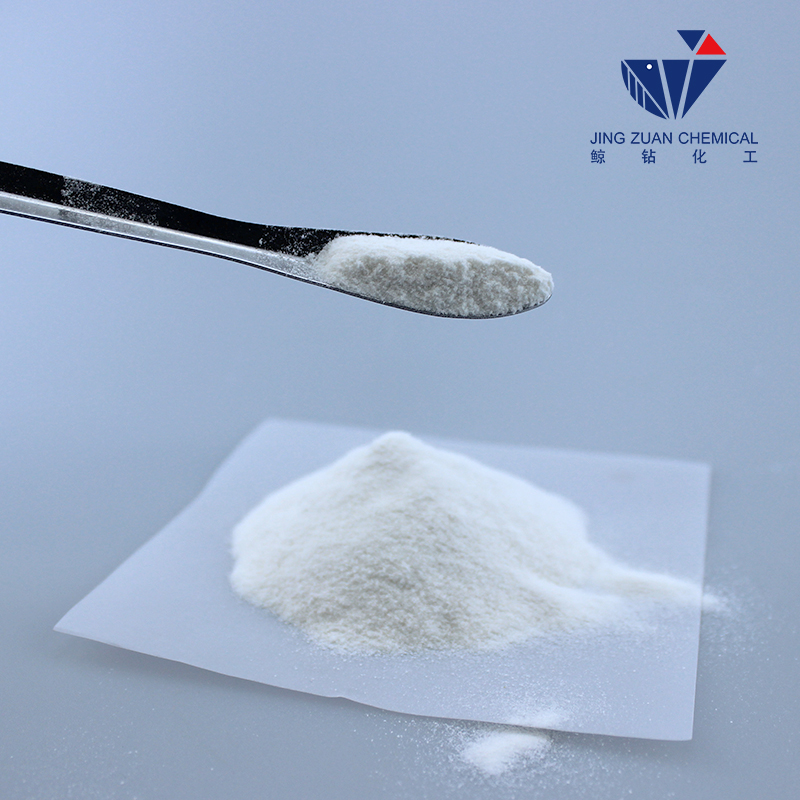
Oct . 27, 2025 20:20 Back to list
Cellulose Ether for Paints & Mortars | Stable Viscosity
cellulose ether is a key solution in the chemical industry, specifically within fine chemicals and cellulose ether. This article explores how HEBEI JINGZUAN CHEMICAL TECHNOLOGY CO., LTD. supports professionals with durable, high-performance products, and explains why this product is an ideal choice for businesses in these sectors.

Table of Contents
- cellulose ether Overview
- Benefits & Use Cases of cellulose ether in cellulose ether
- Cost, Maintenance & User Experience
- Sustainability & Market Trends in chemical industry
- Conclusion on cellulose ether from HEBEI JINGZUAN CHEMICAL TECHNOLOGY CO., LTD.
cellulose ether Overview
Cellulose ether is a family of water-soluble polymers derived from natural cellulose and modified to deliver targeted performance in construction materials, coatings, personal care, pharmaceuticals, and household chemicals. In fine chemicals, these polymers act as rheology modifiers, water retention agents, film formers, and stabilizers—enabling consistent processing and end-use quality. Typical grades include HPMC (hydroxypropyl methylcellulose), HEC cellulose (hydroxyethyl cellulose), and MC (methyl cellulose). HEBEI JINGZUAN CHEMICAL TECHNOLOGY CO., LTD. manufactures a broad portfolio of cellulose ether grades tailored to applications that demand precise viscosity build, workable open time, and superior dispersion.
Technical ranges often specified by B2B buyers include viscosity (e.g., 400–100,000 mPa·s in 2% solution at 20°C, Brookfield), degree of substitution (e.g., methoxy 19–24% and hydroxypropyl 4–12% for HPMC), moisture (≤5%), pH (5.0–8.0), particle size (pass 80–100 mesh), and gel temperature (60–90°C depending on grade). As a reliable manufacturer, HEBEI JINGZUAN emphasizes batch-to-batch consistency, tight viscosity control, and clean dissolution profiles to minimize fisheyes and ensure predictable rheology in high-shear industrial processes.
Benefits & Use Cases of cellulose ether in cellulose ether
Across the cellulose ether landscape, HPMC and HEC cellulose grades from HEBEI JINGZUAN CHEMICAL TECHNOLOGY CO., LTD. enable top-tier performance in drymix mortars (tile adhesives, grouts, skim coats, wall putty), gypsum-based plasters, self-leveling compounds, paints and coatings, home care detergents, and personal care formulations. In paints, cellulose ether functions as a reliable liquid thickener after hydration, delivering sag resistance, improved leveling, and stable pigment suspension. In mortars, it offers optimized open time, anti-sag, and enhanced water retention—resulting in stronger adhesion and reduced cracking.
Key advantages for B2B decision makers include rapid dispersion (low fisheye formation), robust salt and surfactant tolerance (for detergents and latex systems), and tailored viscosity curves for spray, brush, or trowel applications. Many processors also value low odor, clean color, and high purity to minimize formulation drift. With application-centric technical support and grade selection guidance, HEBEI JINGZUAN ensures customers choose the right cellulose ether for their processing equipment, climate conditions, and substrate requirements.
Cost, Maintenance & User Experience
Total cost of ownership for cellulose ether hinges on dosing efficiency, production uptime, and quality consistency. Because HEBEI JINGZUAN’s grades hydrate cleanly and deliver reproducible viscosity, customers often reduce rework, stabilize line speed, and cut additive overuse. In drymix systems, a 0.2–0.5% cellulose ether addition can unlock significant performance gains—reducing callbacks and warranty claims due to improved workability and adhesion. For liquid systems, fast-wetting grades streamline premix times and lower energy demand in dispersion steps, translating to measurable operational savings and stronger ROI.
Users in fine chemicals report smoother batching, fewer lumps, and predictable rheology from lot to lot—critical for scale-up and global production harmonization. Packaging options that resist moisture ingress help preserve shelf life and reduce waste. HEBEI JINGZUAN backs products with detailed TDS/SDS, formulation tips, and on-request lab support so engineering and procurement teams can validate performance quickly and move to commercialization with confidence.
Sustainability & Market Trends in chemical industry
Market demand is shifting toward bio-based inputs, safer chemistries, and lower-VOC formulations. Cellulose ether—derived from natural cellulose—aligns with these priorities by enabling waterborne systems, reducing solvent reliance, and enhancing efficiency in application and curing. Regulatory expectations around worker safety, emissions, and end-of-life impacts are intensifying across regions, prompting producers to select polymers that help them formulate compliant, durable products without compromising performance.
HEBEI JINGZUAN CHEMICAL TECHNOLOGY CO., LTD. embraces a forward-looking approach: supporting documentation requests, offering technical guidance on VOC-sensitive systems, and continuously refining grades for faster dissolution and cleaner rheology profiles. By focusing on consistency and supply reliability, the company helps customers navigate shifting regulations and sustainability targets while protecting product quality and brand reputation.
Conclusion on cellulose ether from HEBEI JINGZUAN CHEMICAL TECHNOLOGY CO., LTD.
Cellulose ether empowers formulators in the chemical industry—especially fine chemicals—to control viscosity, optimize water retention, and stabilize complex systems across mortars, coatings, detergents, and more. HEBEI JINGZUAN CHEMICAL TECHNOLOGY CO., LTD. stands out for dependable quality, application know-how, and responsive support that accelerates time to market and strengthens ROI. Ready to elevate performance with proven cellulose ether solutions? Contact us: email: oscar@cnjzchemical.com. Visit our website: https://www.cnjzchemical.com
-
Cellulose Ether | High Purity, Fast Hydration, Stable Flow
NewsNov.17,2025
-
Cellosize HEC Thickener – High Purity, Fast-Dissolving
NewsNov.17,2025
-
Cellulose Ether: High-Purity Liquid Thickener, HEC Cellulose
NewsNov.17,2025
-
VAE Powder (RDP): High Adhesion & Flexibility for Mortars
NewsNov.17,2025
-
Cellulose Ether: High Purity, Fast-Dissolving, Stable Flow
NewsNov.17,2025
-
Cellosize HEC Thickener – High Purity, Fast-Dissolving
NewsNov.11,2025







